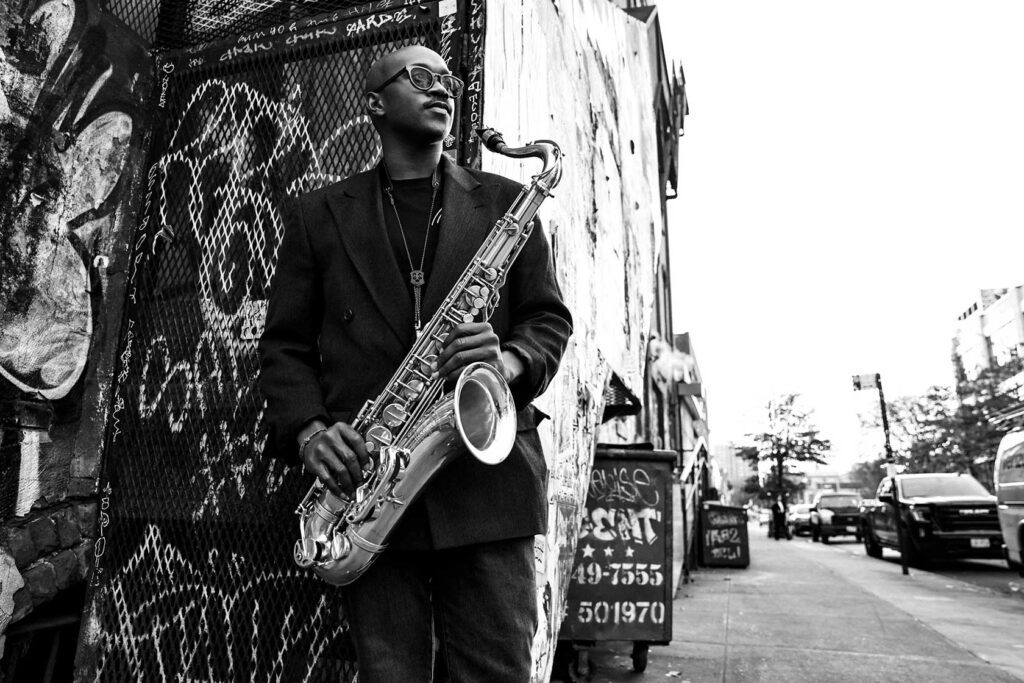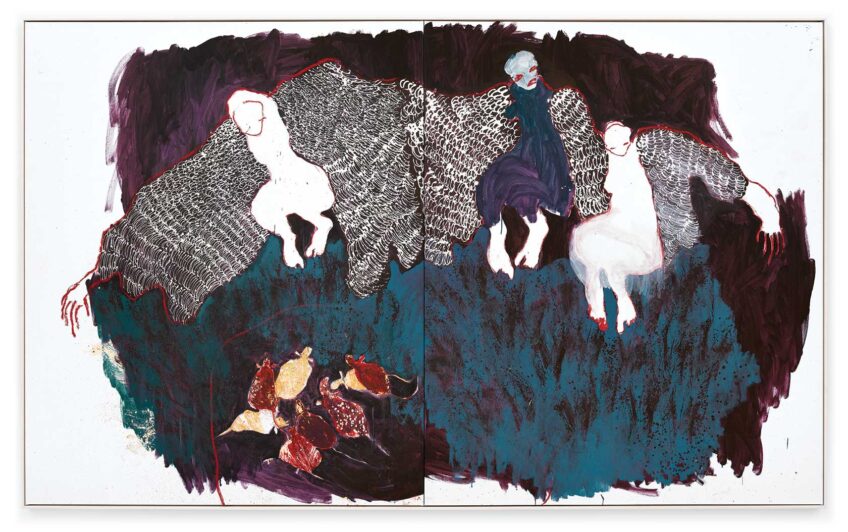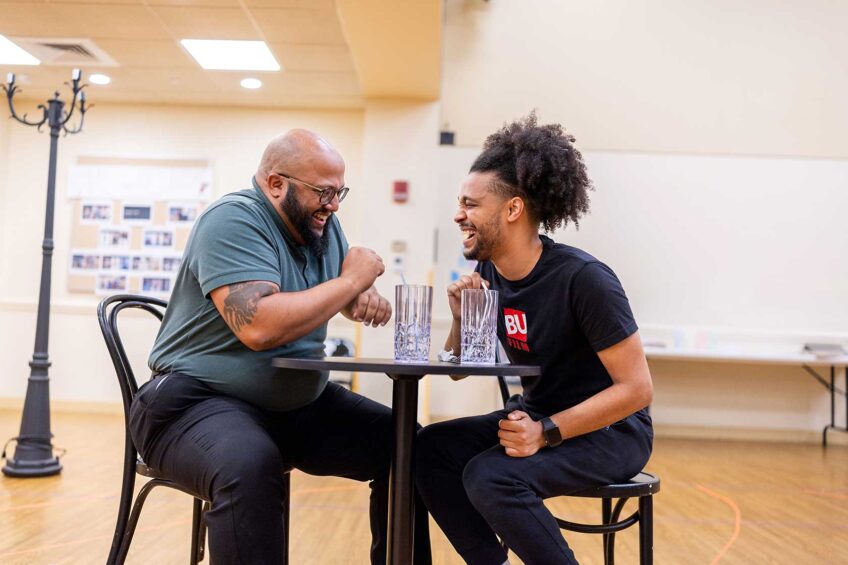
Boston saxophonist and composer Gregory Groover Jr. is at it again with his release of “Lovabye” this past April. The recording is both a departure and evolution from his earlier work, “Negro Spiritual Songbooks, Volumes 1 and 2.” The new album features 11 original tunes composed by Groover. While one can hear melodies familiar from his earlier work, “Lovabye” is more fluid and conveys a feeling of spontaneity enhanced by Groover’s own maturity as a musician, as well as the formidable contributions of the band on the album: Joel Ross on vibes, Matthew Stevens on guitar, Aaron Parks on piano, Vicente Archer on bass and Marcus Gilmore on drums. The album is produced by Walter Smith III, chair of woodwinds at Berklee College of Music, where Groover serves as assistant chair of the ensemble department.
The Banner met up a few weeks ago with Groover in his office at Berklee.
Banner: “Lovabye” seems to be a departure from your first two recordings. I bet you’ll say it’s a continuation. So how is it both a departure and a continuation?
Gregory Groover Jr.: In the most obvious sense, it’s a departure, insofar as my first two recordings were based on Negro spirituals — my life growing up in the church. “Lovabye” is solely original music. Where the current record is connected to those albums is that here, too, it is theme-based.
What is the theme?
Love. Love broken into various components: my love in relationships, current and previous; love for people in my community; love for my family; lost love.
You have tunes called “Lovabye Theme” and “Lovabye” on the album. How do these synthesize the album’s themes?
Well, love and lullaby. I knew the record was based on love. These themes are meant to provide a structure for the lineage of the overall album, which has different sources of musical genres: gospel, jazz, and music I enjoyed growing up, like James Taylor and The Carpenters. The Carpenters were big!
The Carpenters?
My family loved their music! And Broadway. I saw “Les Miz” three times as a kid, and “Wicked” and “Oliver Twist.”
How did your producer help organize your many ideas and influences?
As the producer of the album and a longtime mentor, Walter told me, “Don’t have so many expectations before you start recording.” He meant that the music should take shape as we play it. To that end, I sent the music to the musicians on the album, but not recordings. It was when we got together to play the music that the tunes took shape. We literally recorded the album in one day. No rehearsals! For that to happen, we had to trust one another as musicians. For me, it helped that the people playing on the album are my heroes.
I loved hearing vibraphonist Joel Ross on the album. What did his approach to music add to what you are doing?
Joel is a very secure musician. He trusts his instincts. He is also a very spiritual individual who added perfect balance, technique and tastefulness. He has both dexterity and can create beautiful melody. He has chops and is lyrical!
Where we are from has a lot to do with how we create. What bearing did growing up in Boston have on you?
At this moment, I can see how being brought up in the church is directly correlated to my great love for various age groups, young and old. That’s particularly important as a jazz musician. Then, too, I’m interested in the jazz history of Boston. I never had a chance to go to the famous jazz clubs, Hi-Hat, Paul’s Mall, Lennie’s on the Turnpike, but I’ve been learning about them. Wally’s is still here, and I’ve been going there weekly since I was in 10th grade.
That said, what can the city and private sector in Boston do to create a scene that matches the enormous talents at the New England Conservatory and Berklee?
We have the Charles River Jazz Festival in its fourth year, run by Seba Molnar, who is a great saxophonist and composer. My sister Gerami Groover is doing great things at the Hamilton-Garrett Center for Music & Arts. We have the Celebrity Series. We need to continue to support the visions of artists.






